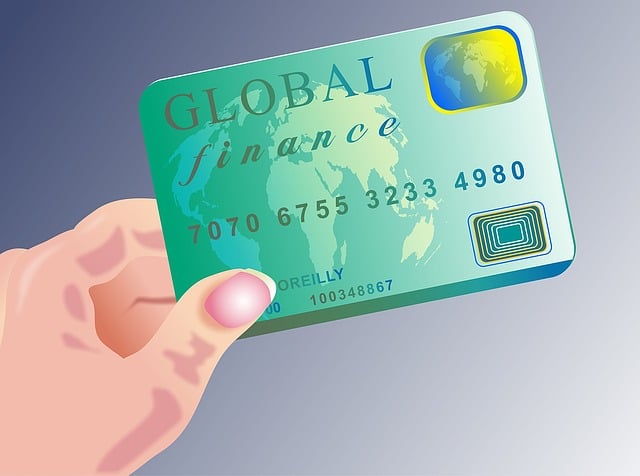WhatDepositing Funds You Should Know About

a, there are a few things you should know about depositing funds. Some of the most common deposit options include: a demand deposit, a security deposit, a time deposit, a fractional reserve deposit, and an overdraft facility.
Demand deposit
Whether you need a checking account or a savings account, you’ll want to check into the benefits of demand deposit accounts (DDAs). These are often offered by banks and credit unions, and are designed to give you easy access to your money. You can withdraw money at any time, without having to give advance notice.
Demand deposit accounts Types of Payment
are a good choice for people who regularly need to make withdrawals. They offer a low interest rate, and the funds are readily available for use at any time. The accounts can be funded with a cash deposit at the bank, and can be used with a debit card. You can also use the accounts to make purchases in brick and mortar stores.
Some demand deposit accounts charge fees for certain services, such as monthly maintenance fees, or they may have a minimum balance requirement. You should carefully read the terms and conditions of any DDA to ensure you understand what you’re getting.
You can withdraw funds from a demand deposit by writing a check, using an ATM, or through online banking. You can also transfer your funds to another demand deposit. Some demand deposit accounts may even offer fee-free ATM access.
Most demand deposit accounts are FDIC insured up to a certain legal limit. There are some exceptions, such as money market accounts, which may have additional restrictions on the type of withdrawals you can make.
There are different types of DDAs, but the most popular are checking and savings accounts. Checking accounts let you make frequent withdrawals from your account by using a debit card, by writing a check, or by using an ATM. You can also open a savings account, which is accessible through a teller service.
Time deposit
Term deposit or time deposit accounts are safe investments that allow you to earn a higher interest rate than traditional savings accounts. The APY or annual percentage yield depends on the terms and the bank where the money is deposited. These investments are available from banks, credit unions, and other financial institutions.
Using a time deposit account can help you meet your financial goals, especially if you have a long-term plan. However, it’s important to shop around before you make a decision.
The interest rates on time deposits vary, so it’s essential to compare them. The longer the duration of the deposit, the higher the APY. Also, you should consider other investment options. A money market account may be better for you if you need access to your money immediately.
Before making a decision, you should learn about the penalties for early withdrawal. In addition, you should check the fine print for any limitations on withdrawals.
Some time deposit accounts are limited in the amount you can withdraw each month. Other institutions may require an advance payment or a large deposit before you can open an account. You should consider your long-term financial goals before deciding whether or not a time deposit is right for you.
You should also consider the interest rates offered by different institutions. Depending on the bank, the rate can range from low to high. You should be aware that there is an annual tax on the interest on time deposit accounts. This tax will reduce your earnings and can significantly reduce your interest income.
The amount you can withdraw from your time deposit account will depend on the tenor and the maturity date. For example, you can withdraw the full principal if the tenor is a year or less, or the interest can be rolled over into a new tenor.
Security deposit
Having a security deposit is an excellent way to protect yourself against a landlord’s eviction. It also gives you the opportunity to find a new tenant sooner.
The rules of a security deposit are governed by state law and local laws, so it’s best to do your homework. A good rule of thumb is to keep your security deposit under one month’s rent. However, if you have a fully furnished rental property, you might be required to keep a larger deposit.
You’ll need to compare security deposits for similar properties in your area to see which one is the best deal. In addition to price, you’ll need to consider other factors, such as the competition in your area and the amenities of the property.
A security deposit is the money you pay to your landlord as part of the buying process. This amount is typically equal to one month’s rent, and will usually be refunded when you move out.
The amount deposited may be in the form of a credit card, check, or some other form of money. In some states, a security deposit is required to be placed in a separate bank account from the rent.
A security deposit is not just an earnest payment – it also serves as a way to protect your property from damage. Typical uses of a security deposit include fixing broken appliances or repairing damages caused by a renter.
In some states, you’ll be allowed to keep a portion of the security deposit to cover the cost of finding a new tenant. You’ll also be able to keep the money if you don’t pay the rent.
It’s also possible to get a security deposit refund if you can prove that you complied with the landlord’s rules for moving out.
Fractional-reserve banking
Unlike a full reserve banking out without holding it in a reserve account. This system has several advantages and disadvantages. It encourages economic growth and creates a broader money supply. But it also has some critics who worry about the stability of the economy.
A full reserve system requires that a bank maintains 100% of all deposits on hand. This can be problematic in times of economic crisis. In these circumstances, a run can occur. This can cause the bank to run out of funds or become insolvent. During the early Great Depression, runs were a big problem in the U.S. During that time, a flood of people tried to withdraw all of their money from banks at once.
In a fractional reserve banking system, banks are allowed to keep a small percentage of their deposits in a reserve account. This allows them to generate interest on the money they do not need. They can then use this money to make loans to people and businesses who need it.
There are two types of customers who put their money into a bank: depositors and time depositors. Those who deposit their money into a bank earn interest on their checking accounts. In addition, they can invest their money in other assets.
A common criticism of fractional reserve banking is that it is unstable. However, evidence shows that this is not the case. During times of relative normality, the system works well. The Federal Reserve System is responsible for ensuring that banks do not run out of money. In the event of a run, the system acts as a lender of last resort.
Overdraft facility
Using an overdraft facility is a great way to make transactions when you are running short of funds. These are available from almost all public and private sector banks in India. However, there are some things you should know before signing up.
The interest rate charged on an overdraft can vary from lender to lender. In general, the interest rate on overdrafts is higher than the ROI on fixed deposits. This is because the daily interest rate on an overdraft is calculated only on the amount that you borrow, and not on the full principal.
In order to apply for an overdraft, you must have an active bank account. You will also need to have some collateral. This may be a mortgage on your house or an insurance policy. You can use equity as collateral as well, but the value of equity can fluctuate.
An overdraft facility is the easiest way to make payments when you are running low on cash. Unlike a loan, an overdraft does not require you to pay monthly installments. Instead, you can repay the lender in parts.
Overdraft facilities are usually offered to customers with a home loan. These customers need to have their property appraised before they are approved for an overdraft. The overdraft limit is typically up to 50% of the property’s value.
Some banks offer an overdraft facility with no prepayment penalty. Unlike other loans, an overdraft does not affect your credit score. If you use an overdraft, you should make sure to pay it back as soon as possible. A lapse in payment can lead to dishonor charges.
Overdrafts are best used when you need extra money for emergencies. You can apply for an overdraft through a bank, online, or in person.





